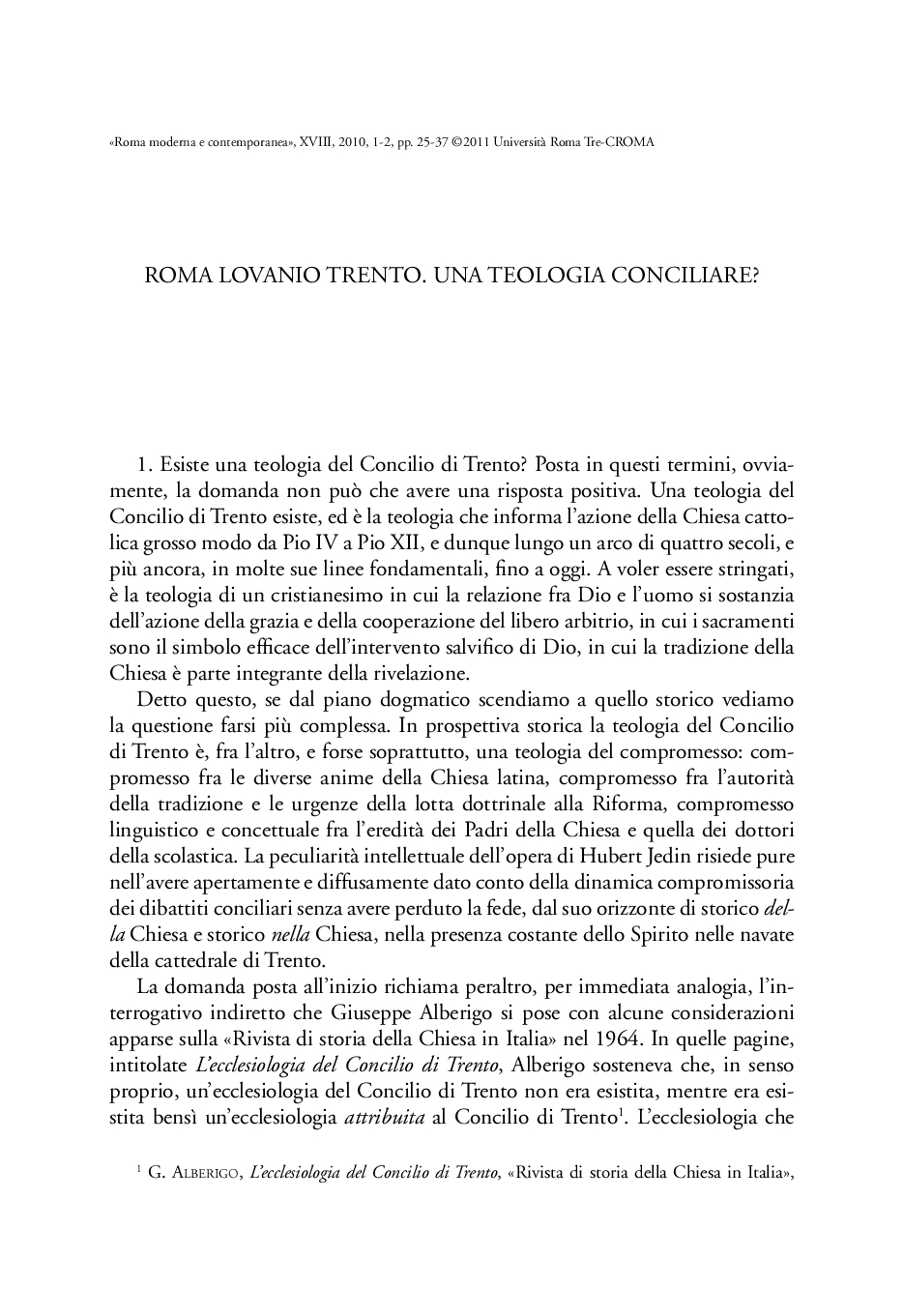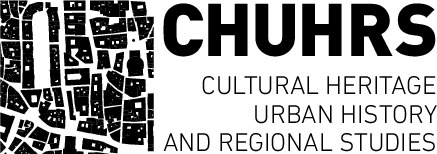
- Roma moderna e contemporanea
- Codice etico
- Editore e amministrazione
- Organi scientifici
- Indicizzazione e valutazione
- Norme editoriali
- Ultimo fascicolo
- Indice dei fascicoli
- Indice degli autori
- Articoli Open access
- Call for papers Numero monografico
- Abbonamenti
- Info recensioni
- Trasferimento di copyright
- Richiesta di autorizzazioni
AMBIENTE DI TEST
Indice degli autori
ROMA MODERNA E CONTEMPORANEA » 2010/1-2 » Teologia e teologi nella Roma dei papi (XVI-XVII secolo)
ISSN 1122-0244
Motta Franco
Roma Lovanio Trento. Una teologia conciliare?
pp.25-37, DOI 10.17426/38050
Articoli
Abstract: The legacy of the Council of Trent within the doctrinal heritage of Catholicism could hardly be overestimated, yet in many issues the Council acted as a place for mediation among different theological trends, marking rigid boundaries in matters disputed with the Reformation while leaving indefinite others where orthodoxy was not at stake. The dogmatic propositions drawn up by the theological faculty of Leuvan in 1544, the views of Pedro de Soto, among the official theologians of Charles V, abut grace and free will, as well as those of the Augustinian general Seripando on original sin, all demonstrate how major theological schools tied with the ancient anthropological theories of Augustine were forced to compromise with the Roman choice to fight Protestantism rather than preserve a supposedly «pure» tradition. In this sense, the Council of Trent demonstrated that it was able to play a role of theological negotiation, and consequently to prevent differences in matter and method from endangering the doctrinal consistency of the Church during the height of its effort to recapture consciences. It is important to underscore the distinction between the theology of the Council of Trent and the Tridentine theology. The latter being a more long-term result of the process of «orthodoxy-building» enacted by the Roman See through a flexible interpretation of the conciliar decrees.

Referenze
- download: n.d.
- Url: http://www.chuhrs.eu/?contenuto=indice-degli-autori-rmc&idarticolo=588
- DOI: 10.17426/38050
- citazione: F. Motta, Roma Lovanio Trento. Una teologia conciliare?, "Roma moderna e Contemporanea", XVIII/1-2, pp.25-37, DOI: 10.17426/38050
